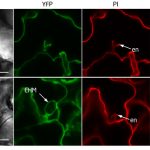Recognizing Plant Physiology authors: Laurent Mombaerts
Laurent Mombaerts, co-first author of Differential effects of day-night cues and the circadian clock on the barley transcriptome
Current Position: 2019 – now Postdoctoral Research Scientist, Systems Control group, Luxembourg Centre for Systems Biomedicine, University of Luxembourg
Education:
2019 : PhD in Engineering, Systems Control Group, Luxembourg Centre for Systems Biomedicine, University of Luxembourg. “Dynamical Modeling Techniques for Biological Time Series Data”
2015 : M. Sc. Biomedical Engineering, Faculty of Applied Sciences, University of Liege (Belgium); complementary courses in Katholieke Universiteit Leuven (KUL) (Belgium)
2014 : Research Assistant and Master Thesis (4 months), Department of Mechanical Engineering, University of Canterbury, Christchurch (New-Zealand); “Glycemic Control over Continuous Glucose Monitoring (CGM): Safety and effectiveness evaluation”
2013 : B. Engineering Sciences, Faculty of Applied Sciences, University of Liege (Belgium)
Non-scientific Interests: innovative technologies, traveling, Squash, ski
Brief bio: I have always been passionate about technologies and concerned about applying engineering knowledge to biomedical applications. My domain of expertise lies between time series analysis, machine learning and systems biomedicine. During my PhD in the Systems Control Group of the Luxembourg Centre for Systems Biomedicine, I have mostly been developing dynamical modeling techniques for the inference of gene regulatory networks in the context of circadian rhythms. The result of this research is used in this Plant Physiology paper to predict a highly relevant core network of the circadian clock of barley. The algorithm has been benchmarked, and also used to identify dynamical regulators of the period of the clock in Arabidopsis Thaliana. Overall, my research now involves the development of data-driven approaches to reverse-engineer complex biomedical models from large scale biological time series data to better understand and predict the future behavior of various systems of interest.




